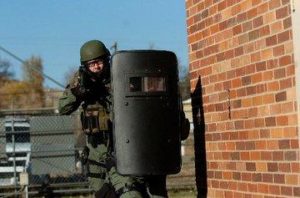 Crime is an unfortunate reality.
Crime is an unfortunate reality.
By being prepared for it, you lessen your chance of becoming a victim.
In your home:
- Always lock your doors during the day, even if you are home or only leave for a few minutes.
- Never open the door automatically when someone knocks. Use a peephole or ask for identification.
- If a stranger asks to use the phone, do not permit entry. Offer to call for emergency assistance.
- If you find a window or door has been forced or broken while you were away, DO NOT ENTER OR CALL OUT. Use a neighbor’s phone to immediately call 911 and wait for help to arrive.
- Always close and lock garage doors before you drive away.
- When you return home, do not leave your house key in your door, even for a minute. Also avoid putting your keys and purse down just inside the open door, or leaving them in the car with the garage door open.
- Equip every external door with a sturdy deadbolt lock with a minimum of a 1 1/2” bolt.
- Secure sliding glass doors with commercially available locks, a broomstick or wooden dowel in the track to jam the door in case someone tries to pry it open.
- Extra keys should not be hidden in mailboxes, planters or under doormats. Give an extra key to a neighbor you trust who is often home.
- When you move into a new house or apartment, have the locks changed.
- Exterior doors are ideally solid wood of 1 3/4” or metal.
- Windows should be of good quality and have secure locks. Don’t forget about basement windows.
- Trim shrubbery that hides doors or windows. Cut tree limbs that could help an intruder climb into windows.
- Turn on outside lights after dark to illuminate porches, entrances and yards in the front and back of your house. You may want to install timers or motion detectors on exterior lights.
- Clearly display your house number so police and emergency vehicles can find your home quickly.
- Update your home inventory list. Take pictures of your personal property and make sure you have a list of items and their serial numbers. Keep this list with your important papers. If you home is burglarized, this can help identify stolen items and make insurance claims easier.
- If you hear a noise that sounds like someone breaking in or moving around, quietly call 911 and wait calmly until they arrive. If you and your family can leave safely, do so. Otherwise lock everyone in a room. Do not put yourself in danger.
